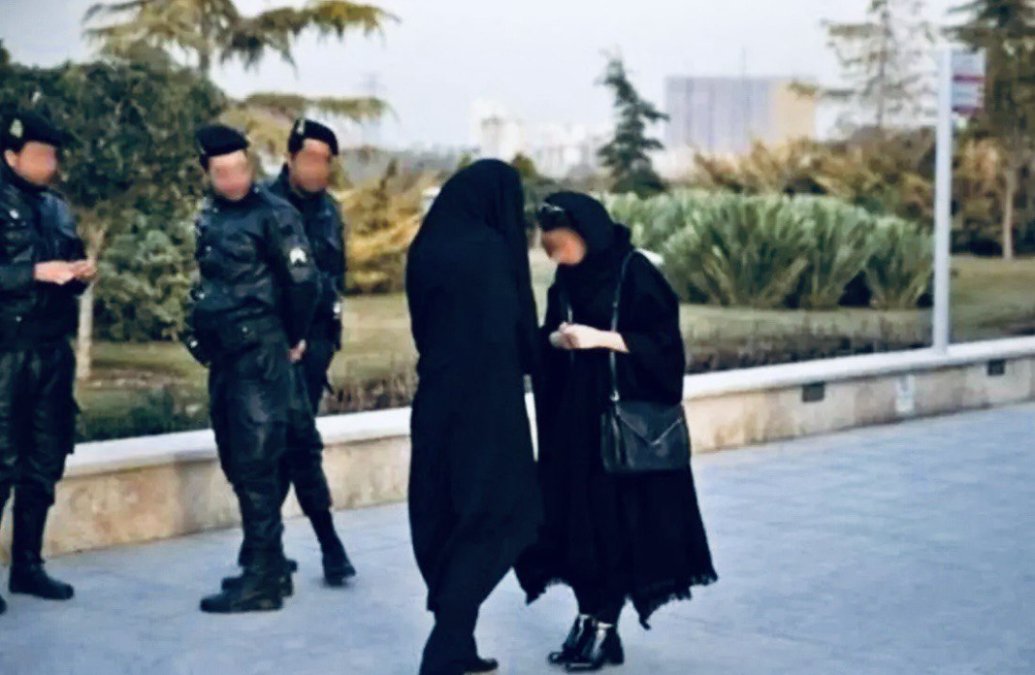Violation of law and citizens’ rights by sending hijab text messages
Violation of law and citizens’ rights by sending hijab text messages
Actions like photographing people’s faces and using artificial intelligence to identify individuals are clear examples of violating individuals’ privacy and infringing on citizens’ rights.
Those who consider themselves authoritative on the hijab issue pay no attention to other mandatory regulations, as if they have forgotten the laws like the Computer Crimes Act, the Charter of Citizens’ Rights, the Judicial Security Document, and dozens of other legal titles that outline the dos and don’ts for judicial officers and agents of government and law enforcement agencies.
Recently, when the news of the opening of a ‘De-Hijab Clinic’ by the efforts of the Women’s and Family Department of the Headquarters for the Promotion of Virtue was published in Tehran, the designers of this idea claimed that this center is being opened with the aim of scientific and psychological treatment of de-hijab specifically for the teenage and young generation and women seeking social and Islamic identity.
The news of the establishment of the ‘De-Hijab Clinic’ by the Headquarters for the Promotion of Virtue reminded of a decision this headquarters made to deal with de-hijab by using the criterion of the length of women’s hair strands.
In 2022, the secretary of the Headquarters for the Promotion of Virtue and Prevention of Vice stated that the Research Center of the Parliament announced that the number of improperly veiled women had exceeded 50 percent.
According to the law, this center defines a veiled and unveiled individual based on religious criteria, meaning even if a single strand of a woman’s hair is visible, she is considered a criminal and must be arrested.
Now, a few years after this plan, the issue of sending text messages by this headquarters has been raised, which, aside from legal issues and other matters, indicates the inefficiency of the managers and individuals in the Headquarters for the Promotion of Virtue, who claim to serve the society and fulfill religious duties, including the obligation of promoting virtue and preventing vice.
Such actions are taken while in the legal realm, the existential reason for each institution and the philosophy of its establishment and its historical background are examined, and in parallel, the function and output of such rules are analyzed, where the common foundation and basis for defining the function of each institution is how to protect the fundamental rights of the people and the correct method of governance with the aim of ensuring the rights of the nation’s individuals.
The outcome of what is known as the philosophy of law and the foundations of legal sociology is the understanding and comprehension of the obvious and generalizable principle of law as the final arbiter for the behavior of citizens and the actions of the government.
Article 57 of the Constitution, while emphasizing the acceptance of the principle of separation of powers, stresses that these powers are independent of each other, and subsequently, Articles 58, 60, and 61 elaborate on the duties and powers of the three branches, and Article 59 considers decision-making regarding major issues and very important economic, political, social, and cultural topics dependent on the people’s vote and opinion.
Referring to some actions taken by institutions like the Headquarters for the Promotion of Virtue, which appear in various forms on the issue of hijab, the question arises as to what the philosophy of creating such a reference is.
Secondly, how are the powers and duties of such an institution defined? The establishment of such a headquarters was not possible contrary to the Constitution and other imperative laws, and for this reason, simultaneously with the establishment of such an institution in 1993, the title ‘Headquarters for the Revival of the Promotion of Virtue and Prevention of Vice’ was defined for it to specify, based on the concept of the mentioned title, that such an institution cannot perform executive work until in 2015, a law titled ‘Support for Promoters of Virtue and Preventers of Vice’ was passed by the Parliament, which expanded the scope of this headquarters’ powers.
Despite such a matter, the explicitly stated regulations in the law of the source of establishment of such a reference limit the main axis of activity and powers of this institution to the domain of promoting virtue and preventing vice, and any form of governmental behavior by this reference that results in the violation of citizens’ rights or violates rules like the principle of separation of powers is prohibited and contrary to the country’s Constitution.
Assuming that the Headquarters for the Promotion of Virtue, in coordination with the Moral Security Police, has intervened in the hijab issue and the sending of text messages, what is the legal basis for such an action?
According to the law, the police and some military-security organizations, as judicial officers under the supervision of the prosecutor, and based on their legal duties, have powers, the condition and restriction for exercising those powers is the issuance of a judicial order, which must also be based on the law, and no officer, at any rank or position, has the right to restrict the scope of citizens’ rights of the Iranian people without a judicial order, except for obvious crimes that are subject to specific restrictions, or to place citizens in a threatening situation by sending text messages or obtaining commitments.

